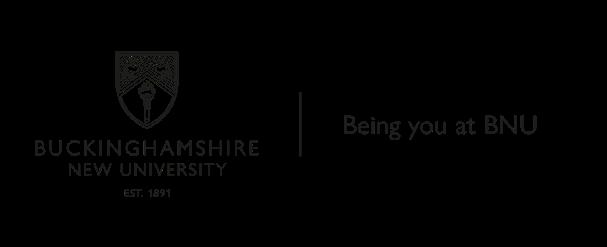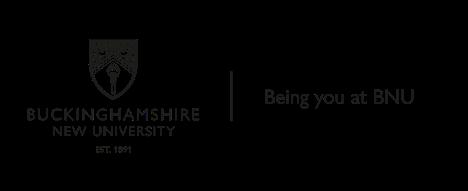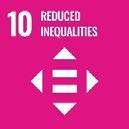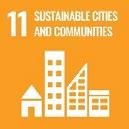




We are a modern university, with a proud history of over 130 years, transforming our students’ lives by creating a vibrant, inclusive community that inspires learning through employmentfocused and skills-based teaching and applied research.
BNU is a great place to work and study. We have a distinctive high-quality educational offer coupled with well-developed regional, national and international partnerships. We have an advantageous geographic footprint.
Our High Wycombe Campus is only 40 minutes from London by train, and just 30 minutes from London Heathrow Airport. The Uxbridge Campus is even closer.
The excellent achievements of our students are testament not only to their efforts, but also the hard work and dedication of our people whom support them, both in and out of the classroom.
Our vision is to create a great workplace for the people who work at BNU, now and in the future. We recognise that creating a diverse workplace culture is key to our success, and that our values and behaviours have an important role to play in delivering a great student experience.
We want all of our staff and students to be themselves, and fulfil their full potential, which is a key part of our employer brand –Being you at BNU.
Rachael Cornwall Chief People Officer


Formerly known variously as Buckinghamshire Chilterns University College (BCUC) and Bucks New University (Bucks), we are now known as Buckinghamshire New University or BNU for short. You can find out more about our corporate brand, mission and vision here
You can find out all about BNU’s constitution, structure and governance on our website here . You can also find more detail about each College and Directorate, a staff directory and a wealth of other information on our intranet, BE N (see below).
BNU operates from 3 locations – High Wycombe campus, Uxbridge campus, and Aylesbury campus. You can find information and maps of our campuses here .
BEN is the University’s intranet and was built by colleagues, for colleagues.
Here is how you can benefit from using BEN:
• It is your guaranteed source of the latest news and information – log in at the beginning of every day and keep the tab open, news changes daily.
• You can access links to useful portals, apps, links and user guides, including Business Connect , Blackboard, student attendance monitoring, room bookings, visitor booking, and fault reporting and staff e-learning. You can find guidance and useful tips on how to navigate BEN here .
• Use the search tool to help you find content quickly – documents, FAQs, the Vice-Chancellor’s latest video update, everything is on BEN.
• It’s the place to share good news from your area with colleagues so we can celebrate successes and learn from each other. You can find training and support for producing content here
• The ‘What’s New?’ section on the homepage gives business updates as they happen.
• The carousel at the top of the homepage gives you all the good news and key messages from the USG University Strategy Group.
• You can create and join hubs to connect our University community – we have a great Fantasy Football League hub! Or it can be about work – like a project group.
• You can check out the latest social and staff events in the calendar.
If you haven’t already received an email to activate your account, please email BEN@bnu.ac.uk
It’s then easy to get started - and here’s how:
• Learn how to upload stories or documents.
• Find out how your conten t is approved
• See the criteria for all-staff messages and the process they go through.
• If you need help on how to write brilliant copy, click here . Any other questions? Please email BEN@bnu.ac.uk
The IT service desk is the first point of contact for tech support for students, staff and visitors. You can contact them by email ( IT@bnu. ac.uk ), phone (01494-605 000/extension 5000) or in person on 2nd floor of the Gateway building (High Wycombe campus) or 1st floor of the library (Uxbridge campus).
Details of the digital bundle (a quick start guide to all digital services at BNU) can be found on BEN here and includes links to digital services, user guides and contact information.
Business Connect is our integrated system for Finance, Payroll and People. Employees can use the self-service functionality to book annual leave, submit timesheets and expenses, update personal information, submit certain requests, and access information to manage your team (access will vary according to your role). Employees can access Business Connect via the staff area of the website or via BEN. For any issues relating to Business Connect , you can contact the IT helpdesk on IT@bnu.ac.uk Induction training on Business Connect can be found on BEN
Blackboard is the University’s Virtual Learning Environment (VLE). Once you have your BNU username and password, you can access Blackboard from BEN or from the staff area of the main BNU website or from BEN. For any other Blackboard related queries, please first check with your course/module leader and then contact open4learning@bnu.ac.uk
Hireserve is our end-to-end recruitment system used by hiring managers and People. This system is the starting point for all vacancy requests for approval via the Vacancy Review Group (VRG). It then feeds the approved role out to our advertising sites, collects applications, and facilitates our interview set up. Further guidance on Hireserve, Recruitment guidance, and VRG can be found on BEN
We want you to feel valued here as a person, not just an employee, and we try to facilitate a work/life balance that supports you to look after your health and wellbeing and your family.

Welcoming everyone and ‘Being you at BNU’ is important to us. Our diverse community helps make working here inspiring, fun and creative. BNU has a proud history of valuing the importance of inclusion and we will continue to play our part to challenge inequality and build a fairer society.
Our Behaviour Framework supports our DRIVE values : Dynamic, Responsible, Inclusive, Visionary and Empowering. This underpins how we respect and value others and champion an inclusive community that transforms lives.
Supporting you to be the best you can be
We want to make sure you have everything you need to do your job effectively, and we welcome requests for reasonable adjustments to accommodate your individual needs to make this happen.
Our Being You Inclusion Passports enable staff and students to communicate information about their identity and individual needs so that they can be supported to thrive and feel included. The passport can be shared electronically and hyperlinked in an email signature. It can also be stored in a wallet or lanyard, which can be particularly useful for staff who may need support in-person and may be unable to communicate their needs in the moment. You can complete and update this at any time and discuss with your line manager and colleagues to support your individual needs and wellbeing.
All employees are automatically members of the Staff Association which arranges informal opportunities for colleagues to get together throughout the year and meet others across the University. Employees can also apply for Staff Association grants to help meet the cost of events that are open to everyone across the University.
We have an Employee Forum, Race Equality Network, and Being You Network and Affinity Groups (Allyship, Disability, Intersectional, LGBTQ, Mental Health, Parent Support, Religion and Spirituality and Women). You can find further details here
We also hold events and training to raise awareness and particularly encourage input from voices that can sometimes be marginalised or unheard.
We have several affinity groups that are part of this network and you can find more details here
Our strategic approach helps us to learn and develop. We also have several national accreditations and pledges. You can find more details here


We operate dynamic working to support both staff and students to find ways of working that are mutually beneficial, subject to business needs. The demands of certain roles may dictate that the hours and/or location of work will be less flexible than others. Your hours of work and main location are set out in your contract/terms of employment and may differ from role to role. Where possible, we try to encourage working arrangements that support a good work/life balance and benefit the environment by reducing unnecessary commuting. Dynamic working also helps us remain agile, allowing us to operate in exceptional circumstances, even when we have to close a campus/campuses.
Further information is available from the following links:
Dynamic FAQs for staff
Remote workin g (DTS advice)
At BNU, we recognise the importance of health and wellbeing, family and caring responsibilities and how your needs might change over time. We operate with flexibility to accommodate short-term needs where possible, but If your circumstances have changed and you would like to apply for a formal change to your working arrangements, you can find our Flexible Working Policy and procedure here
You are encouraged to plan and take annual leave to ensure you have some well-earned breaks throughout the year for your own physical and mental health. Your annual leave allowance will be detailed in your contract/ terms and conditions of employment. The annual leave year runs from 1 August – 31 July. If you have a part-time contract or your hours vary over the week, your leave will be booked in hours. Your total entitlement will include your annual leave allowance (proportionate to a full-time equivalent of 52 weeks per year and 37 hours per week), in addition to bank holidays, Christmas closure days and any other discretionary/gifted leave.
You can request annual leave on Business Connect . Please make sure the request has been approved by your line manager before making any bookings or travel arrangements. Approval will be subject to business needs You can refer to your terms and conditions of employment to see if you are able to carry over any annual leave into the next year. Otherwise, all outstanding leave should all be taken by the end of July.
Hourly paid colleagues are paid an element of holiday pay included in their rate and can agree to take time off with their line manager as appropriate.
Further information on annual leave at BNU can be found here . Guidance on how to request, change, cancel and monitor annual leave using Business Connect can be found here .

As part of the University’s commitment to civic engagement and community outreach, we offer up to 2 days’ paid leave per year to all salaried staff to carry out volunteer work. Managers should promote the take up of volunteering and may discuss how employees can benefit from the experience during their annual Performance Development Review (PDR). The volunteering can be organised by the employee themselves, through the Civic Engagement Team or the BEN Volunteering page. Volunteering should;
• Benefit both the community and the volunteer
• Not promote discrimination, hatred or extreme political/religious views
• Not conflict with your role or responsibilities
• Be in line with the University’s corporate social responsibility strategy
If you would like to take part in volunteering activities, please explore the volunteering BEN page , or contact volunteering@bnu.ac.uk Our normal policies and procedures relating to conduct and behaviour apply while you are representing the University as a volunteer.
Volunteering for public duties such as magistrate, local councillor or school governor are covered separately (see page 15).
As employees, you are the most valuable resource in delivering an excellent student experience. The University is keen to recruit and retain high performing and talented employees through supporting you where possible and appropriate to balance the needs of your home and work life. To reflect this commitment, the University offers a variety of special leave options. Each request will be considered on its own merit and authorised at the discretion of your line manager or Dean of College/Director. Should further leave be required, your line manager will explore other solutions. All types of special leave should be recorded by the employee, via self-service, on Bus iness Connect
BNU is committed to developing work practices and procedures which support worklife balance. The University recognises that some employees may wish or need to take an extended break from work for a variety of personal reasons during the course of their employment (known as a career break).
A career break is defined as a longer period of authorised leave in order for the employee to, for example, undergo a course of study; take time off on account of childcare or other family responsibilities; pursue a personal interest or undertake a personal project; take an extended holiday or go travelling.
Employees on substantive contracts are eligible to apply once they have passed probation, unless the terms and conditions of an employee’s right to work in the UK do not allow for a career break to be taken.
All career breaks will be taken on an unpaid basis. An application for a career break should me made via our Career Break Request Form on Bus iness Connect
If you are moving home, the University will give you one day’s paid leave in addition to your annual leave. This should be discussed and agreed in advance with your line manager. One request can be granted every rolling 12-month period. You can request this leave via Bus iness Connect .
In the unfortunate event that you have to deal with critical domestic emergencies, (e.g. a fire, flood or burglary at home and/or breakdown of childcare arrangements), the University offers up to two days’ paid leave in a rolling 12-month period while you put arrangements in place. Your line manager or sickness administrator will need to submit this leave via Busi ness Connect
(including exam attendance and graduation)
The University is committed to your learning and development. Depending on your role and operational requirements, you may be granted up to 5 days’ study leave per year to take professional qualifications. To find out more, please refer to the Learning and Devel opment Policy.
If you need to attend Court as a witness or are called for jury service, you should provide the written notification to your line manager as soon as you receive it, so that they can grant you leave to attend. Please also send a copy to People. You need to claim any loss of earnings you are entitled to from the Court (including any contributions to your pension scheme, as there is no break in service) and forward the remittance to the People. The amount received will then be deducted from your pay in the appropriate month.
BNU holds a Ministry of Defence Gold Award for supporting veterans and is a proud supporter of those who serve, veterans and their families. Please advise us when you join or are thinking of joining the reserve forces so that we are aware of our obligations and can plan for your absence and return when you need to take leave. This applies to members of the Volunteer Reserve Forces (Royal Naval Reserve, Royal Marines Reserve, Territorial Army or Royal Auxiliary Air Force). The University values the transferable skills you gain as a reservist and will grant 2 weeks additional paid leave per year. Any reasonable leave requested in excess of 2 weeks should be taken from your annual leave entitlement or be taken as unpaid leave, subject to your line manager’s approval. You should notify your line manager of any dates for training and provide copies of any documentation as early as possible.
If you are mobilised, we will try to place you in your former role when you return or (if this is not reasonably practicable) in a role at an equivalent level. The University may apply for a deferral to your mobilisation if your absence would cause serious harm to the business, and applications must be made within 7 days of receiving the call-out notice. Further details can be found here
Under the Employment Rights Act 1996, you have a right to reasonable time off work to undertake public duties if you hold certain public positions. This should be agreed with your line manager at least one month in advance. Requests will be agreed based on: the length of duty; the amount of time you’ve already had off for public duties; and how the time off will affect the University’s business. Further information, including a list of roles that qualify, can be found here

We understand that you may need support in relation to your family circumstances and to reflect this commitment, we offer a variety of family leave options for our employees.
If you or your partner are expecting a baby, planning to foster or adopt, please refer to our Family Leave Policy on BEN, where you can access detailed information on Maternity Leave and Pay, Adoption Leave and Pay, Paternity/ Partner Leave and Pay, Shared Parental Leave and Pay, and Parental Leave and Pay.
All eligible parents are entitled to up to 18 weeks unpaid leave, per child, up until their 18th birthday. This also applies to Foster Carers. Please refer to our Family Leave Policy for more guidance.
We try to be flexible to allow you to continue working, but if it is not practical, you may need to take time off. We try to be flexible to allow you to continue to work but if it is not practical to work, you may need to take time off. Up to 2 days of this leave will usually be paid (for salaried staff) to deal with certain unexpected or sudden emergencies and to make any necessary long-term arrangements. Please keep in touch with your line manager as soon as you can to let them know the reason for your absence and how long you expect to be away from work.
If you know in advance that you’re going to need time off, you should request leave in the usual way via Business Connect . If you need to take time off in relation to your child, you may be entitled to Parental Leave. Further details are available in the Family Leave Policy.
The University childcare voucher scheme is closed for new joiners. Information on other available options can be found here .
If you are already registered, you’ll still be able to continue using the scheme unless you take an unpaid career break of more than a year.
Occasionally you may be faced with difficult personal circumstances which mean that you can’t come into work. Compassionate leave may be granted if you have serious personal or family difficulties to deal with at short notice. You can take up to 2 days’ paid leave within a rolling 12-month period at the discretion of your line manager. This type of leave is designed for use in exceptional circumstances, but some situations may require you to be absent from work for longer. In this case, your line manager will explore other solutions such as annual leave, flexible working, a temporary reduction in contracted hours or unpaid leave. You should keep in regular contact with your line manager to keep them up to date with your situation.
BNU has signed up to the Miscarriage Association’s Pregnancy Loss Pledge . We recognise that the type of leave and support needed will depend on your individual circumstances. Please see our Pregnancy Loss Guidance or contact one of our Pe er Supporters
Staff who have formal caring responsibilities, including foster carers, are entitled to 5 days’ unpaid leave in a rolling 12-month period.
Immediate family ( Parent, spouse, partner, grandparent, brother, sister).
In the unfortunate event of a death of an immediate family member, you can take a maximum of 5 days’ paid leave. Should further leave be required, your line manager will explore other solutions. You should keep in regular contact with your line manager to update them.
Where there has been a death of another relative or close friend, you can take one day’s paid leave to attend the funeral. This should be discussed and agreed in advance with your line manager.
Paid parental bereavement leave of up to 2 weeks will be granted in the very sad event that you experience the loss of a child (under 18), miscarriage or a stillbirth. Please see our Family Leave Policy for further details.

In the rare and tragic event that an employee’s partner dies during childbirth, or an adoptive parent dies at the time of placement, we will provide immediate access to full contractual shared parental leave (equivalent to maternity leave) for the bereaved parent, instead of paternity leave.


Your health and wellbeing are important to us as your employer. There is a dedicated area on BEN for health and wellbeing, where you can find useful information, events, and details of our employee assistance programme.
Our Employee Assistance Programme (EAP) offers 24/7 access to a confidential and impartial service to all employees. It is designed to help employees with a wide range of work, family or personal issues, including work-life balance, relationships, health & wellbeing, debt, stress and many more. You can also access a free, online GP service between 8am and 10pm through our online Your Care Wellbeing platform.
For more information, please click here.
If you feel too unwell to work, you need to inform your line manager, ideally no later than an hour after you’re due to begin work, giving the nature of the illness or injury and an estimate of how long you think you will be absent. If you come to work but need to leave during the day because of ill health, you should inform your manager before leaving work. If they are unavailable, you should inform the next most appropriate person/manager within your College/Directorate.
All staff are responsible for recording their sickness absence on Business Connect , upon their return to work. If the sickness absence goes over 7 calendar days, a GP fit note will need to be provided to your line manager, and the People team will log the absence on your behalf.
You can find details of your sick pay entitlement in your Terms and Conditions of employment.
Further guidance for staff can be found on BEN and in our Managing Sickness Absence Policy
We allow reasonable time off to attend doctor, dentist and hospital appointments or for emergency medical or dental treatment and such appointments aren’t reported as sickness absence. You should make every effort to ensure that routine appointments are made either outside working hours or at the beginning or end of the working day. You can access a free online GP service through our EAP (see above). Please book medical leave appointments via Bus iness Connect
Our occupational health service is provided by Buckinghamshire NHS Trust. Access to the Occupational Health Service is available via People. You may be referred to our Occupational Health Service or other health professionals if, for example, we need to assess your fitness to work and working capacity. Referrals are usually recommended if one or more of the following apply:
• you’ve taken prolonged absence from work
• you’ve suffered an incident or accident
• you’ve declared a temporary or permanent health condition or disability.
The general purpose of the Medical Health referral is to:
• assess the impact of any medical/ health conditions
• consider whether the individual is fit for work / able to return to work
• provide a prognosis of medical/ health condition
• assess and document any restrictions on the type of activities/work to be undertaken
• support requirements for work adjustments.
Any written reports from the Occupational Health Practitioner will be treated confidentially and, in line with the University’s GDPR policy and recommendations, will be communicated to you and your line manager as appropriate.
For further information, please refer to the University’s Managing Sickness Absence Policy a nd Procedure

We expect all staff to be professional and you should not report to work under the influence of alcohol and/or any substances. The University does not consider it acceptable for staff to be impaired by alcohol and/or substances during the conduct of their duties. Support is available if you or someone close to you is affected by alcohol or substance misuse. Please seek help from your line manager, the People team or from our employee assistance programme ( EAP ) if you are concerned about your use of drinking or drugs before it has an impact on your performance or behaviour at work. Useful links can be found here . Our Health and Wellbeing; Employee Capability; Disciplinary; Respect, Fairness and Inclusion; and Managing Sickness Absence policies can be found here
If you are a line manager concerned about a member of your team, you can find guidance here .
We aim to promote a healthy working environment for staff, students and visitors. However, there are designated outdoor areas at all campuses where smoking is permitted. Our Smoking Policy can be found here
To facilitate an open, understanding culture, remove stigma and get people the support they need, we have peer supporters and specific guidance for colleagues and managers relating to menopause and menstrual health , including conditions such as endometriosis, Pre-menstrual Syndrome/Dysphoric Disorder (PMS/PMDD), fibroids, and Polycystic Ovary Syndrome (PCOS).
You can access a menopause module on our e-learning platform by selecting ‘staff e-learning’ from the main menu on BEN
We recognise the physical and emotional stresses of undergoing fertility testing and treatment and are committed to supporting employees going through the process themselves or as supporting partners. Please find our Fertility in the workplace guidance or contact a peer supporter for more information and leave options and support we offer, or to apply for a loan for fertility treatment.

The Gateway Gym is open for staff, students and the wider public. Our Employee Premier Membership provides a wide variety of opportunities for engaging in regular physical activity. Unlimited use of the gym, personal exercise programming and access to our full range of group exercise sessions and is great value for money. In addition, membership gives big discounts on additional services such as personal training. Regular activities such as gym challenges and workouts of the week help keep members motivated and the Team are always available to give a helping hand, offer training tips, check technique or simply provide a friendly welcome.
Further information on the Gateway Gym can be found on BEN
The Multi-faith Chaplaincy provides practical, spiritual and pastoral support to staff and students of all faiths and none. They are available by email, phone or in person if anyone wants a chat or some support. Currently there are two quiet spaces, both known as The Sanctuary, at High Wycombe and Uxbridge. These spaces are multi-faith and available to all for prayer, meditation and quiet. Both are equipped with wudhu facilities. The Chaplaincy also runs the University food bank, to which staff can refer students in need. Bucks New Usage is the flagship upcycling project, with access to items currently available on request. The team includes Baptist, Church of England, Free Church, Muslim, and Quaker chaplains, who are always willing to talk or pray with people of all faiths and none. You can contact the chaplaincy on multifaithchaplaincy@bnu. ac.uk , phone 07544 750 793 or visit the MultiFaith Chaplaincy page on BEN.
The Staff Association is run by BNU colleagues and it is all about enabling people to enjoy meeting up informally, getting to know others across the University, and, most importantly, having fun! BNU employees are automatically a member of the Staff Association and can enjoy
a host of subsidised activities, outings, and get-togethers.
Whether it’s a theatre trip, a day at the seaside, or a Christmas party, the Staff Association supports events year-round. For more information on the Staff Association, please visit their BEN page .
We have a number of other networks across BNU - please see the Equality, Diversity and Inclusion (EDI) section
The University is dedicated to providing all possible support and facilities to employees who have returned to work after a period of maternity leave, to assist their transition back to work. The University provides a dedicated rest room for pregnant employees and new mothers. The High Wycombe rest room is located in Timberlake building (T2.16) and is a private room to be used only for these purposes (any issues relating to the room and facilities should be reported via the BNU Apps Portal ). The room can be accessed by the BNU ID Card and can be manually locked from the inside. Toilets are located nearby. At Uxbridge campus the rest room is located on the lower ground floor. At Aylesbury this facility can be located in room A2.24. Further information and guidance on breastfeeding on campus can be found in the Family Leave Process & Procedure on BEN
Both external and internal post is collected from and distributed around campus by the post room team. The post room is open from 8am – 4pm Monday – Friday and Royal Mail collect from the post room at 3.30pm Monday - Friday. The Post Room can be contacted on extension 3241 or by email on hwpost@bnu.ac.uk
If you become aware of a maintenance issue (e.g. plumbing or electrical), you can find a Campus Report Form on the main menu on BEN (left-hand side of the home page).

We aspire to be an employer of choice and strive to ensure we offer fair pay and a range of great benefits.
Our approach to recruitment, selection and retention is to ensure we exceed the requirements of the Equality Act 2010 and all other relevant employment legislation. Our inclusive approach values diversity and encourages the recruitment, progression and retention of under-served groups. We strongly encourage people to share their equality characteristics and circumstances, so that we can identify gaps and track progress in relation to advancing equality within our workforce.
Our pay gap reporting includes gender, ethnicity and disability and we also routinely complete an Equal Pay audit. This helps us to better understand what more we need to do and target appropriate actions.
All roles on the BNU salary scales are evaluated using Higher Education Role Analysis (HERA). You can find out more from our Role Review and Analysis Process here . Information about regrading and promotion regarding grading can be found here . The Role analysis scores map to our salary scales and can be found on BEN .
Salaries are paid on the last working day of the month for the full month worked. Pension, Tax and NI contributions will be deducted.
If you are hourly paid, you will also be paid on the last working day of the month, but timesheets are paid monthly in arrears, so hours worked after the timesheet cut-off date will be paid the following month.
You can get help with any payroll queries by emailing payroll@bnu.ac.uk or calling extension 5760.
Please check BEN for cut-off dates for timesheet and expenses claims , guidance on submitting, amending and approving expense claims , and guidance on submitting, viewing and approvi ng timesheets
You can find your payslips & P60s on Business Connect – please follow the instructions here . A notification is made on BEN on the notifications and tasks menu once payslips are live for the given month. A P60 will be issued if you worked with us in the last week of the tax year.
You need to submit expenses and mileage claims via Business Connect within 90 days of the expense being incurred, or they will not be reimbursed. You and your manager need to make sure they are submitted and approved in time, comply with the University’s Employee Expenses Policy, and include appropriate supporting evidence, such as receipts.
For further information, please also refer to this BEN article on Time and Expenses.
We offer generous defined benefits pension schemes. Most employees will be automatically enrolled into one of two main pension schemes, unless you elect to opt out:
• Local Government Pension Scheme (LGPS) for professional service employees
• Teachers’ Pensions for academic employees
Both schemes offer:
• life cover
• provisions for ill-health retirement
• guaranteed retirement and family benefits
Further information about each scheme and the employee contribution bands can be found on BEN
If you’ve been absent on long-term sickness and haven’t been able to use your statutory holiday entitlement, you can substitute a period of sickness absence with a period of holiday. If this is not possible, you can carry over any outstanding statutory leave to the following leave year. A fit note or equivalent must be provided, and you must discuss the situation with your line manager. If your contract begins or ends part way through the holiday year, or you work part-time, your holiday entitlement for that year will be calculated on a pro rata basis.
If you have any outstanding holiday entitlement when your employment ends that you can’t take before leaving, your holiday pay will be calculated at the rate of 1/260 of annual salary for each full day. If your holiday entitlement is in hours, you’ll receive the equivalent hourly rate. The same fraction is applied to the recovery of holiday taken in excess of your entitlement.
For further information please head to BEN to read our FAQs about holiday entitle ment and pay.
We try to avoid asking you to undertake work outside your contracted hours. Those on professional contracts at Grade G or above will be expected from time to time to work additional hours as necessary to meet the demands of their role without additional payment. However, where additional hours are mutually agreed, the following payments will be made to those at Grade F or below:
• (for part-time) Additional hours up to 37/week Plain time
• Monday to Saturday: Time and a half
• Sunday: Double Time
Alternatively, compensatory time off in lieu (TOIL) at plain time may be taken at a mutually convenient time.
If overtime payments are agreed with your manager, you will need to claim for these hours via Business Connect . Guidance on this can be found on BEN . You will need to select the correct code based on their eligibility as per the above.
For work on a public holiday or a day that the University is officially closed, in addition to the normal pay for the day, compensation may be awarded as follows:
• Additional payment at plain time for all hours worked within the employee’s normal hours of work or compensatory time off in lieu.
• Overtime pay at double time for any additional hours worked above 37 per week.
Further guidance on overtime at BNU can be found on BEN


We offer discounts on a wide range of goods and services from various retailers to all salaried staff, and an interest-free salary sacrifice option for some larger items, such as electrical goods and electric or hybrid cars. You can find further details from our Rewards, Recognition and Benefits page on BEN
There are several ways to recognise and say ‘thank you’ to colleagues, teams and managers for all they do for our students and improving the way we work together. We are committed to creating a motivational environment where employees thrive.
Please visit our Rewards, Recognition and Benefits page on BEN for details about how you can share your thanks and praise for colleagues.
More information on Highfive and how to activate the app can be found on our BEN Rec ognition page
We work in partnership with our recognised Trade Unions, UCU (representing academic colleagues) and UNISON (representing professional services colleagues). You can read our Trade Union Recognition Agreement for full details of the partnership.











As a university we wish to develop our staff, students and partners to allow everyone to grow and thrive. We therefore committed to the principles of Sustainable Development.
The most common definition of sustainable development is that developed by the Brundtland report ‘meeting the needs of the present without compromising the ability of future generations to meet their own needs’.
There are three key pillars of sustainable development:
• Environmental
• Social
• Economic
Every decision we make and every project we do should have a positive impact on economic sustainability, social sustainability, and environmental sustainability.
Our commitments are courageous and will make us one of the UK’s most sustainable Universities. Our ambitions are more than the sum of our commitments. We are keen to show our students, staff and partners how integral Sustainability is to our operations and core beliefs.
BNU has signed up to the UN Sustainable Development Goal Accord, a network of institutions and businesses that look to make the world a better, fairer place through supporting and contributing to the SDGs. The UN SDGs break the topics of Environmental, Social and Economic Sustainability down into 17 key areas, each of which includes its narrative and includes qualitative and quantitative targets for improvement.






In recognition of the vital role and immeasurable value of life on earth we are a founding member of the Nature Positive Universities Pledge.
To become a nature positive university. Our commitment requires us to follow the principles of the Mitigation and Conservation Hierarchy. Thereby reducing the harm that our operations have on life across our planet. Our Nature Positive Pledge will help us with the following UN SDGs:
3) Good Health & Wellbeing
6) Clean water and sanitation
13) Climate Action
14) Life Below Water
15) Life on Land.
The principles of the Mitigation and Conservation Hierarchy should be within our decision making & procurement processes.
Refrain from harm
Reduce our impact
Restore our ecosystem
Renew environments
We ask all of our students to consider how they can take action to minimise our impact on nature and drive a positive change.











We joined the Race to Zero Pledge in 2020 in recognition of the need to take decisive action to cut CO2 emissions. By joining the pledge, we stand with over 1,100 likeminded educational institutions that seek to reduce greenhouse gas emissions to net zero as soon as possible. We refer to this as ‘Decarbonisation’.
We chose to set ourselves the ambitious target of reducing our Scope 1(direct consumption of fuels) and Scope 2 (electricity) to zero by the year 2030. We chose this date in recognition of the environmental and social damage caused by the emission of greenhouse gases, and the challenge of balancing global decarbonisation against the continuing need for development in the global south. It is therefore vital that we, as an institution in a developed nation, achieve net zero as soon as possible.
Our Scope 3 commitments are equally ambitious. Though we know that it may not be possible to achieve a complete reduction by the year 2030 we aspire to reduce our emissions as far as possible by 2030.
It is the collective responsibility of all BNU staff, learners & partners to help us to make the world a better place. We do not ask people to make drastic lifestyle changes, rather, we ask everyone to consider if they could do things better by introducing new systems, behaviours or ways of working.
We encourage all our staff to make their ideas and passions known. If you are passionate about a particular environmental or social cause, then we want to know. We might be able to help you to champion that cause. Staff & students can email Sustainability@bnu. ac.uk with any ideas or queries.

In partnership with Bucks Students’ Union, we offer all employees a free, door-to-door bus service (Campus Link) for students and staff between the High Wycombe and Uxbridge Campuses. The bus schedule is here.
All employees are encouraged to enjoy the health benefits of walking, running or cycling to work. Secure, covered bicycle shelters, lockers and showers are available at High Wycombe and Uxbridge Campuses for walkers, runners and cyclists. Details of our cycle to work loan scheme are available here .
Interest free season ticket loans are available for travel to work by bus and rail. Please see the Financ e area on BEN.
Details of our car parking permits and how to apply can be found here . You can read about visitor parking here
The University car club, in partnership with Commonwheels, provides a pool car free of charge for the use of employees during business hours and easy access hire vehicles for employees and students outside business hours. Click here to read more on how to join the club.


Induction describes the process of adjusting or acclimatising to your new role and working environment, which is key to how you integrate and successfully complete your probation period.
Your line manager has primary responsibility for ensuring that you are supported during your induction period and for carrying out your probation reviews.
A guide to Induction and Probation is available here on BEN.
Probation is assessing your suitability and ability to successfully deliver in your new role. The terms of your probation will be detailed in your terms and conditions of employment.
It is your line manager’s responsibility to provide the necessary information and on the job training that will equip you to undertake all aspects of your role at the university. It is your responsibility to demonstrate your suitability to the role. Your manager should ensure systems are in place to support and monitor your work throughout the probationary period, and make sure that you receive reasonable support and assistance to fulfil the duties and responsibilities of the role.
Regular probation reviews should take place throughout your probation period.
A guide to Induction and Probation is available here on BEN.
All employees must complete the eLearning modules at the start of their employment. Further details on these modules and expected completion times can be found on BEN
The modules must be completed by the end of the probation period, which may extend if any modules remain incomplete. Completion of mandatory modules is necessary to pass probation, apply for promotion and secure funding for learning and development opportunities. In addition, it is an organisational requirement that refresher training for all mandatory training modules is completed every two years.
The learning and development team plan and implement continuous and new development initiatives resulting from training needs analyses. This ensures that relevant development is provided for skills in specific job areas, where work procedures have changed, or where new standards are introduced. This can be driven by business plans or identified in probation reviews or Performance Development Reviews (PDRs) and includes development opportunities for both colleagues and line managers.
Specific initiatives will be managed by the People Learning and Development team e.g. Aurora Leadership Development. The university sponsors both Academic and PSE colleagues for each available cohort, as well as Dignity & Respect workshops to contribute to our equality, diversity and inclusion (EDI), values and behavioural change agendas.
All learning and development offered to employees will be publicised through the university’s normal communication channels, including relevant pages and via the Events page on BEN. Colleagues also have unlimited access to a broad range of modules via our eLearning platform available via single sign-on here
Other specialist teams from across the university support specific development initiatives including Research and Knowledge Exchange and Learning Enhancement and Academic Practice (LEAP) . Please click on the link for more details.
We are very supportive of those seeking to gain higher, professional or vocational qualifications and attend conferences or training courses for the purposes of their CPD. All salaried staff are eligible to apply for funding from the centralised learning and development budget, to be endorsed by the College/ Directorate and approved by People.
Support opportunities are available to you to undertake part-time qualifications for courses provided by the University for which a fee waiver applies. You may also apply for a course that isn’t offered by BNU if it is directly relevant to your work and has been identified as part of the probation or PDR process. Guidance on what funding is available, how to claim and any repayment conditions can be found in the Learning & Development Policy, Application for Funding Guidance Notes, and App lication Form
We are committed to attracting, developing and retaining talent and recognise the value of being a member of a recognised PSRB. If your membership benefits your College/ Directorate or the University, you may reclaim the annual membership subscription via expenses in accordance with the BNU expenses policy. Consideration may be given to other applications where there is a substantial commercial benefit to the university e.g. discounted training with a clear cost reduction. You can find out more details in the learning & development policy here
The BNU Performance Development Review (PDR) is a university wide process to support you in maximising your contribution to our strategic goals as well as furthering your development. An honest & meaningful PDR discussion and ongoing feedback are therefore of significant importance and value to you and your line manager. The PDR is a joint process between you and your line manager/appraiser. The BNU performance year runs from September to August. You should have no less than 2 formal reviews each year, 1 during the PDR window which runs from September to November each year. A formal assessment of overall performance must be recorded at the end of year review.
An interim review should take place in March/ April each year to review progress and should incorporate an additional conversation if you wish to explore and record your career goals.
Performance management is a holistic process based on continuous dialogue between you and your line manager or appraiser. It is therefore strongly recommended that there are ongoing conversations to both give and receive effective performance feedback.
You can find more information on BEN New employees have regular reviews during their probationary period and the PDR process applies once this has been successfully completed. The PDR process may not apply to employees on short-term contracts, Associate Lecturers and Atypicals, but it is important to agree and monitor key performance outputs, providing feedback to ensure effective contribution.
The university is a levy paying employer and encourages apprenticeships to recruit new staff and to develop existing staff. If you would like to enrol on an approved apprenticeship programme, funded separately from the levy, you should discuss this with your line manager and have it endorsed by your College/ Directorate to ensure adequate consideration of the off-the job training (OTJ) requirements and other eligibility requirements of the ESFA funding rules. All apprentices will need Level 2 English and Maths qualifications, and support can be provided for this as part of your apprenticeship programme if needed. You can find out more details here on BEN
A sabbatical policy is available to support employees wishing to take a dedicated and agreed period of time away from normal duties. Further details can be found under special leave here and on BEN .
Our Learning Exchange Programme allows colleagues to spend time in other organisations (HEIs and other sectors) to uncover new ways of working and learn best practice in a specific area. Staff can spend up to four weeks in an academic year with external organisations and share and implement their learning when they return. Learn more about the programme and how to apply here
Your Performance Development Review (PDR) is an opportunity to discuss your professional development and career aspirations with your line manager or reviewer. Our Grade Descriptors (PSE) and BNU Academic Career Pathways (BACP) can be used as a guide to identify areas where you can focus your professional development to progress to the next level or grade. Once you’ve met the criteria to progress, you can apply for promotion through the relevant process (separate for Academic and PS E colleagues).

There are trained first aiders at each campus. Please call Reception to find your nearest First Aider.
Our security team is available on extension 5070 or (01494) 605070 (24 hours, 7 days a week).
The emergency services can be reached by calling 999 (dial 9 first from a BNU phone). Please then inform security as above so they can be directed without delay.
Your health, safety and wellbeing is a priority at BNU and we all share responsibility for each other’s health and safety at work. When you join BNU, and every 2 years thereafter, you will be asked to complete the mandatory health and safety e-learning. This can be accessed from the main menu on BEN ( Staff e-learning ).
There is a Health and Safety page on BEN where you can find useful advice and information including policies and procedures , how to report an accident , and carrying out risk assessments. You will need to complete a risk assessment if you plan to bring a child or assistance animal onsite.
We believe that everyone has the right to work, live and study in a safe and supportive environment that is free from harassment and fosters inclusivity and respect. Please visit this link for information about reporting student harassment and sexual misconduct. To report harassment or sexual misconduct of a member of staff by a colleague, please get in touch with the People team ( people@bnu.ac.uk) or report it using our Report and Su pport service
PPE will be provided where necessary, e.g. in labs or workshops. Please familiarise yourself with routines and precautions in your work environment and contact your line manager or the Health and Safety Manager if you have any issues or concerns.
If you need to work alone or out of hours, please inform your Dean of College/Directorate and check the Lone Working Policy.
Teaching rooms can be accessed between 9am and 6pm during the academic year. Outside these times, the rooms will be locked. If you need to gain access in an emergency, you can call Security on extension 5070. If you will need regular access out of hours, you will need a personal pass key from the Estates office. Please email the Estates and Facilities Administrator or call into the Estates office with your BNU ID card between 10am and 12pm.
Your teaching room should be ready for use on the hour so please vacate teaching rooms five minutes before the end of your programmed session - in most cases this will be at 5 minutes to the hour. If someone is in your allocated teaching room, please politely ask them to leave. A copy of your timetable would be useful as evidence of your allocated room. You can make additional room booking requests via Blackboard under “My Timetable”. A user manual for AV equipment in Gateway teaching rooms is available from Blackboard. To use classrooms fitted with interactive teaching screens, please book with the IT helpdesk ( IT@bnu.ac.uk or extension 5000) for a demonstration. You can also contact the IT helpdesk for any technical assistance or to log faults.
Please ensure you book in any visitors to BNU via BNU Apps which can be accessed via BEN For safety and security reasons this is to notify our Customer Service Team of their arrival and allows you the opportunity to request a parking space if eligible. You need to ensure you collect your visitor from reception or arrange a colleague to do so on your behalf.


The fire alarm sounds intermittently when activated and is tested regularly. You should be prepared to act when you hear the alarm and if it changes to a continuous sound, leave quickly and calmly by the nearest exit and report to the nearest assembly point. Don’t use the lift.
Please familiarise yourself with the fire drill and evacuation procedure on BEN here .
We all have a duty to monitor and report and any activity that might be linked to terrorist or extremist groups. All new employees must familiarise themselves with the Cause for Concern process, complete the Prevent e-learning module and refresh their training every 2 years. This can be accessed from the main menu on BEN ( Staff e-learning ). Further information, including the Prevent plan and how to spot and report a cause for concern, can be found on BEN here and/or by emailing prevent@bnu.ac.uk
New employees will be issued with a BNU ID Card and lanyard at main Reception on their first day. Your ID card enables you to access university buildings and services such as printing, and it is essential that you always wear your lanyard and ID card whilst on site. If you lose your ID card, a replacement card can be issued at a charge of £2.
If your card doesn’t appear to be working properly, you can reset it by swiping it at one of the card updater points at High Wycombe and Uxbridge.
Card updater points are available on each floor of The Gateway, at the front entrance of The Gateway, or at the main entrance to the Uxbridge campus. If this does not resolve the problem, please ask at Reception at either campus.

Your personal details including address, phone number, next of kin, emergency contact, beneficiary, and bank details must be kept up to date. You can view and update them via selfservice on Business Connect . Guidance on how to make changes can be found on BEN
If you are unable to save the changes, please submit a ‘personal details change form’ on Business Connect and People will be able to make the changes on your behalf. This form can be found under the ‘Forms’ tab in the main menu.
If you need to change your name, you will need to submit a ‘Name change notification’ form via Business Connect . This form can be found under the ‘Forms’ tab in the main menu. Please note that name changes will require some form of proof to be shown to People, e.g. your marriage certificate.
People records containing details of your employment may be kept on paper or electronically and are treated as highly confidential. If you wish to view your records, you should contact the Data Protection Officer via dpofficer@bnu.ac.uk to make a Subject Access Request. The process is outlined in BNU’s Data Protection Policy. Further useful information about how we keep your personal data safe can be found in the Data Protection Statement for Staff and our Intranet
If you use display screen equipment (DSE) as part of your normal daily work, continuously for an hour or more, it is integral to your health, safety and wellbeing that you conduct regular workstation assessment ( DSE Form). This assessment will determine if you require any additional equipment or support.
The University provides up to £25 towards the cost of an eye test and up to £50 towards the cost of Display Screen Equipment (glasses). For more information on how to claim, please read this article on BEN
Our dynamic working practices should allow for many of us to work remotely when severe weather conditions make it difficult to come onto campus. This allows us to maintain continuity of service as well as looking after the health and safety of staff and students.


BNU recognises two trade unions for collective bargaining purposes - UCU for academic staff and UNISON for professional staff. If you wish to join a trade union, or have any questions, please contact People ( people@bnu.ac.uk ) for contact details of the representatives. See the section below for information about industrial action.
Formal consultation and negotiations between staff and management is carried out through the Local Joint Committee (LJC). The purpose of the LJC is to consult and negotiate about collective issues relating to the employment of staff. Staff representatives are elected or nominated by the recognised trade unions.
We also have a BNU Employee Forum, which you can find out more about here
BNU is committed to seeking your views, keeping you informed and inviting you to get involved. Discussions take place within formal committees such as LJC, Equality Diversity & Inclusion, and Health and Safety and working groups. We also encourage employees to get involved in our employee networks
BNU wants all staff to work collaboratively and inclusively and foster an environment where any difficulties are resolved as quickly as possible. If an employee is unhappy with any aspect of their work, they should raise the matter with their line manager in the first instance and involve their People Business Partner as required. Further information can be found in our Employee Grieva nce Procedure

If the University is closed, a communication will be made via BEN, email and University social media and you should work from home if possible. If the University is open and your work requires you to be on campus, you should make every effort to attend work by making alternative arrangements if needed and safe to do so (e.g. using public transport or walking a reasonable distance). If conditions worsen or driving conditions become hazardous during the working day and you are concerned about driving home, you should speak to your manager or Dean of College. We don’t expect anyone to put themselves or others at risk by travelling to and from work.
We want BNU to be a great place for us all to work, showing each other mutual respect. We ask that you familiarise yourself with our expectations outlined in our Code of Conduct , Conflict of Interest , Anti-Fraud and Corruption policy, Respect, Fairness and Inclusion Policy and Transg ender Policy
Before commencing employment with BNU, prospective employees will be asked to provide evidence of their Right to Work in the UK.
BNU holds a Skilled Worker and Tier 5 Visa sponsorship license to sponsor employment of staff from overseas.
It is essential that the University complies with the legislation of the Immigration, Asylum and Nationality Act 2006, and with the policies and regulations of the Home Office. The University’s compliance with the law will be checked by UKVI.
Any Right to Work documentation will be logged by People. If any have an expiry date, People will get in touch with the employee and their line manager from 90 days of the expiry date to obtain an updated document.
If your role requires you to have a DBS check, this will likely be conducted by People prior to your start date using Checks Direct Online . If the check is conducted during employment, some areas of the role may need to be restricted to protect the employee, the University and others until it’s been completed. The outcome of the DBS will be shared with the employee’s line manager. People will ask for DBS checks to be renewed every 3 years, if the role still requires the check.
If your role has been identified as requiring certain professional requirements, People will ask for evidence of this before you start. The details provided will be passed on to your line manager to conduct the check as specialists in their area. If the check is unsatisfactory, the University has the right to withdraw the offer of employment. People will follow up with employees from 90 days of any PSRB expiry dates.
As part of our benefits programme to support colleagues in their continued professional development, employees can claim for expenses for annual subscriptions to Professional, Statutory or Regulatory Bodies (PSRBs) where it enhances individual brand or that of the organisation. Please refer to the section under Learning and Development..
The University recognises that relationships between staff aren’t uncommon and in many cases are unlikely to cause a perceived or actual conflict of interest. However, staff and prospective staff must declare a personal relationship in circumstances or occasions that could cause a perceived or actual conflict of interest. Please read more in the Personal Relationships a t Work Policy
Ideas originated by employees and students of the University, including its subsidiary companies, may be or may become intellectual property (IP). Further information on IP, including how ownership is assigned, can be found in the University’s IP Polic y & Procedure
There are links on BEN and our website to all our Information and Communications policies, including Acceptable Use Policy and Guidance Notes , Email Policy, Bring Your Own Device (BYOD) Policy, Monitoring Policy and Social Media Policy
You can play your part in helping BNU to protect your own and others’ data by taking the mandatory information security training available from our e-learning platform, which can be accessed from the main menu on BEN ( Staff e-learning ).
There are also links on BEN for information security advice , guidance on setting passwords , and a list of helpful security and safety links
Your contract will include a confidentiality clause. We all have a responsibility to protect the University and each other by keeping information about students, employees, the University’s financial affairs, business plans or any other information that isn’t already in the public domain confidential. If you need to raise a concern, for example about the way the University is conducting its business, please see ‘Raising a Concern’ below.
BNU aims to foster an open culture, and the views of our staff and students are listened to and respected. If you have any concerns about how things are done, please refer to the Raising Issues of Concern (Whistleblowing) Policy to find out what steps you should take.
You are protected from unfair dismissal while taking industrial action (subject to certain rules). However, strike action and action short of a strike (partial performance) puts you in breach of your contract as you are not carrying out the work you are paid to do. Unless you had already booked annual leave, a day’s pay will be withheld for each day of strike action and will be calculated at 1/365th of your annual salary (or the number of hours you would have worked if you are part-time). Annual leave requested after the announcement of the strike may not be authorised to ensure adequate staff cover. You can seek information about pension implications from your scheme provider or Trade Union. BNU reserves the right to reassess and modify its position as appropriate at any point during industrial action, including changing the amount of pay to be withheld or reaching agreement to remedy a breach of contract.
Ahead of any planned industrial action, BNU will contact all relevant staff to advise of the above and request that they notify us a) whether or not they intend to take part in the industrial action and b) whether they did take part or not. If no response is received, reasonable checks will be taken to check that there is no other known reason for absence (e.g. parental leave, non-working day, sickness or annual leave) before pay is withheld. If you don’t respond and didn’t take part, you should contact People as soon as possible so that your pay can be reimbursed.
If you decide to leave your employment with us, the list below details what you need to do next:
1. You can find your required notice period in your contract of employment/terms & conditions of employment.
2. You need to give written notice of resignation to your line manager. This can be an email. The day your line manager receives this is the first day of the notice period.
3. Your line manager will send the resignation to People to process.
4. People will write to you confirming your resignation, confirming your last working day, any accrued annual leave (pro rata) to be taken, areas to update your personal details, and any deductions which may be made e.g. overtaken annual leave or course fees.
5. You are expected to take any accrued annual leave during your notice period. If business needs mean that can’t take your accrued annual leave, your line manager will need to confirm this by email to People and the outstanding accrued annual leave will be paid to you in your final pay.
6. You will be invited to complete an Exit Interview form on Business Connect and then meet with your People Advisor for an informal exit chat.
7. On your last day, you will be required to return any University property to your line manager. This includes, but is not limited to, IT equipment, ID pass, office keys, and parking permit.
8. Payroll will process you as a leaver and you will receive your final payslip and P45 in the post following your final pay. Your pension provider will be informed of your leaver status and will write to you directly.
9. Your data will be archived or destroyed in accordance with our Records Lifecycle Mana gement Scheme
The University operates a flexible approach to retirement. However, your entitlement to a paid pension is governed by the rules and regulations of the pension provider. Advice on financial planning for retirement is available from our Employee Assistance Programme and Evelyn Partners. Please discuss any future plans, aims and aspirations and support needs with your line manager to help with future resourcing and succession planning. You may wish to consider a different working pattern to facilitate phased retirement. Please refer to the Flexible Working Policy and procedure here for further information on how to apply. If you decide to retire, you will need to inform your line manager and follow the procedure for resignation in accordance with your contractual notice period (see ‘Leaving employment at BNU’ section).’
For information about ill-health retirement, please refer to the Managing Sickness
A bsence Policy
There are a variety of people available for help and the following table gives employees an indication of who would be most appropriate to consult with about specific queries:
Queries about your role & responsibilities
General administrative queries
General teaching and quality queries
Queries about employment issues
Queries about your contract
Queries about your pay/timesheets
General enquiries
IT related queries / IT access
Student concerns / issues
ID card queries
Security concerns
Useful contact details
Contact Phone
Digital and Technical S ervices (DTS)
5000 option 1 IT@bnu.ac.uk
People 5044 people@bnu.ac.uk
Head of Students and Wellbeing 3444 students@bnu.ac.uk
Security & first aid (High Wycombe)
Security & first aid (Uxbridge)
5000 option 2
5000 option 3
If you have any IT related issues you can log a ticket using IT@bnu.ac.uk . This will generate a ticket number so you can follow up with any member of the IT team. Once the ticket is resolved, you will be contacted with the resolution and the ticket will be closed. You can also visit the helpdesk
by the Library in the main Gateway building (where reception is based) or call ext. 5000 from any internal phone.
ACAD Academic – usually in reference to an Academic employment type
AL Associate Lecturer
BEN BNU Employee Network
BNU Buckinghamshire New University
DTS Digital & Technical Services
DVC Deputy Vice Chancellor
EDI Equality, Diversity & Inclusion
HE Higher Education
HERA Higher Education Role Analysis
HESA Higher Education Statistics Agency
People People (formerly HR/Human Resources team)
L&D Learning & Development
LGPS Local Government Pension Scheme
LJC Local Joint Committee
OfS Office for Students
PDR Performance Development Review
PSE Professional Service Employee
PVC Pro Vice Chancellor
SU Students’ Union
TP(S) Teachers’ Pensions (formerly Teachers’ Pension Scheme)
TU Trade Unions
UCEA Universities & Colleges Employers Association
UCU University & College Union
USG USG University Strategy Group
UMG University Management Team
UNISON The public service Trade Union
VC Vice-Chancellor
VRG Vacancy Review Group